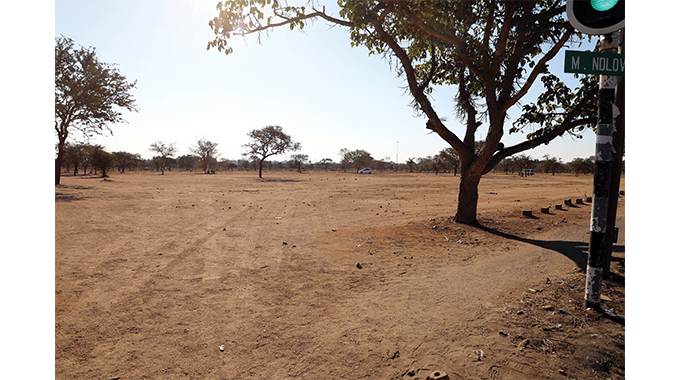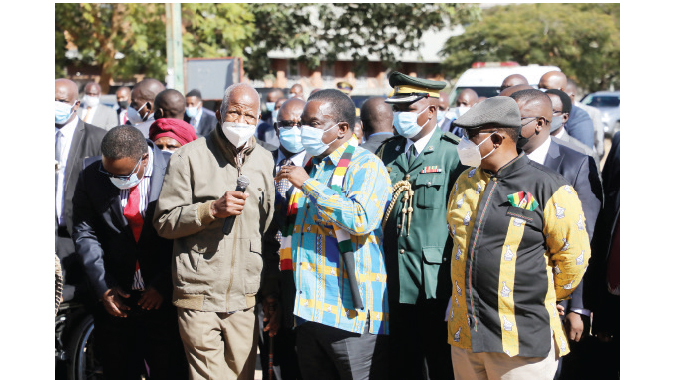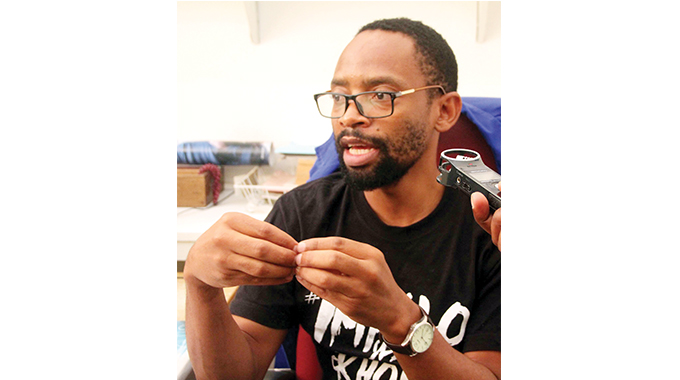Cultural village plan for Inxwala Grounds

Nqobile Tshili, Chronicle Reporter
Bulawayo City Council (BCC) has resolved to transform Inxwala Grounds from residential and ancillary status land into a cultural village to promote tourism through the rich history of the Ndebele people.
Culturalists have commended the council’s resolution saying it is what they have been clamouring for but have divergent views on the way forward.
Some believe the area should be maintained as an open space to host huge outdoor cultural events while others think a cultural complex should be established on the site.
Inxwala grounds is part of Bulawayo’s Tourism Corridor and will soon be declared a heritage site.
A heritage site is an official location which is legally protected where pieces of political, military, cultural, or social history have been preserved due to their heritage value.
Legal instruments have to be promulgated before such a site is renovated or transformed.
The Inxwala site is situated along Masotsha Ndlovu Avenue to the South, Lady Stanley Avenue to the West, Beit Avenue to the North, and Athlone Avenue to the East and will not be used for any development except for tourism purposes.
For years, the site has been neglected and haulage truck drivers had resorted to illegally parking their vehicles on the sacred land, while illegal car washes had sprouted on it.
President Mnangagwa last month toured Inxwala Grounds during Bulawayo’s Arts Festival where historian Mr Pathisa Nyathi narrated to the President the significance of the historical piece of land. Apart from visiting Inxwala grounds, the President also visited the Hanging Tree, Joshua Nkomo statue, St Mary’s Cathedral Basilica, Joshua Nkomo Museum and the Natural History Museum.
In a speech following the tour, President Mnangagwa said the country’s history should be engrained among the lives of Zimbabweans.
“This will go a long way in consolidating unity, peace and social cohesion as fundamental ingredients for nation building. I thus exhort stakeholders in the education and media fraternity as well as communities to continue playing their part in the rewriting of the correct history and bequeathing it to future generations. I commend Pathisa Nyathi for the work he has done. It will remain very useful for generations to come,” said the President.
In the latest council report, the local authority said the Inxwala site is a sacred place with cultural significance to the Ndebele people and should be protected.

Historian Pathisa Nyathi with President Mnangagwa and VP Chiwenga at Inxwala Grounds in this file photo
The council is set to inform the central Government on its resolution before the status is legally permissible.
“That Council approves the proposed change of Reservation for a piece of land known as the Bulawayo Township Lands measuring approximately 13,5 hectares, which is to the northern end of the Central Business District, from residential and ancillary to institutional (cultural centre) so that an application is submitted to the Minister of National Housing and Public Works for approval of the change of reservation in terms of section 49 (4) of the Regional, Town and Country Planning Act chapter 29; 12 1996,” reads the report.
The council outlined the importance of Inxwala site saying it used to host cultural festivals under King Lobengula.
“This festival was characterised by cheerful cultural song and dance routines which were symptomatic of the Zulu nation celebrating the fact that they would look forward to bountiful supplies of food in the kingdom. The festival also served as a thanksgiving to God for providing food for the nation. As the leader of his nation, the king had to firstly accept the early harvest from God on behalf of his kingdom,” read the report.
“This ceremony brought the nation together, unifying it at a time of merry making and quashing fears of famine. It was due to this history that there was a need to have the site reserved so that it served as a historic and cultural centre. In order to have the site preserved because of its historical value it is therefore proposed that the reservation of the site be changed from residential and ancillary to institutional (cultural centre) which will enable a cultural village to be established thereon.”
BCC said the status change and the establishment of a cultural village will enable the country to benefit from the rich history of the Ndebele people.
“The change of reservation of this piece of land will not negatively affect the balance of residential land within the city as the city has adequate land set aside for residential development. Further changing the site to institutional (cultural village) would serve to benefit the whole country as people would be given the opportunity to experience the rich history of the site. The site will also add to the tourism sites of the city due to its historical background,” read the report. Culturalist Mr Cont Mhlanga commended the local authority for making the resolution saying it protects Inxwala site from desecration.
“This is what we have been lobbying for as players in the cultural sector. It’s a resolution that we have asked from council and I’m glad that it has come to fruition. Previously, that area was not protected. That is why part of that portion has been turned into a bus stop. That place has always been a cultural site since the establishment of Bulawayo Town in 1884. So, it’s a very important resolution,” said Mr Mhlanga.
He said Inxwala site should be developed into a park where the city can host outdoor cultural exhibitions.
“What needs to be done now is having the city and Government come together and work hand in hand to turn it into a green space. A green space that accommodates outdoor exhibitions,” he said.
Mr Mhlanga objected to the idea of constructing buildings on the site.
“People who have left it like that for all these years know the importance of an open square within a city. You cannot have a city which does not have an open square for people to gather for activities that do not need to be done indoors. Not all activities for citizens should be done indoors.
“All-important cities always create an open square for cultural activities. I’m one person who is against any form of construction within that space. Whatever construction is put within that space should be removable structures,” said Mr Mhlanga.
“You need an open large space for large costume parades of a nation. You don’t do costume parades indoors. Depending on how they define a cultural village. But in the cultural village sense and how cultural villages are defined across the world, it will be wrong to construct structures on that land. The moment you build structures, that place will cease to become Inxwala grounds.”
On the other hand, historian Mr Pathisa Nyathi said council was in the right direction in turning Inxwala site into a cultural centre.
He said it would be necessary to construct tourism related infrastructure capturing the history of the Ndebele people.
“Our culture is not brought out by antiquity (being ancient), it is brought by considerations like design, that is what matters not so much the materials that are used. You can use the most modern materials but remain honest to our Ndebele designs. And carry out within those structures, activities of a cultural nature. You may have for example restaurants whose cuisines deliberately portray Ndebele custom,” he said.
“For me there is a lot of scope, I can easily design what ought to be there. It’s modern but true to the past in one sense and true to the past in the sense of showcasing that past through attire, or through places of relaxation. It’s a lot of things.
“You only need to apply your mind, that’s what is important. Not to say we must live in the past, we are not going to live in the past, let the present capture the past in a way that is going to make it a lasting heritage. People don’t want to visit a place that has no appeal.” — -@nqotshili










Comments